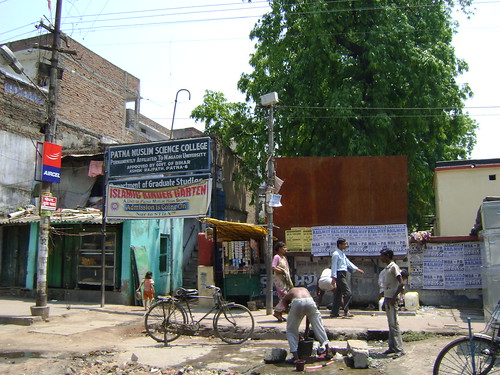TwoCircles.net presents “Agenda for India”. Series editor is Charu Bahri.
Professor M Saleemuddin, Professor and Coordinator, Interdisciplinary Biotechnology Unit and former Dean, Faculty of Life Sciences and Pro-Vice-Chancellor, Aligarh Muslim University shares his thoughts:
“At the outset, I am happy to be able to state that the Government and people of India are fully aware of the potential of biotechnology in agriculture, food, human and animal health, environment etc. We have an increasing number of research institutions and universities that offer postgraduate and research programs in biotechnology and related areas, a large number of research publication that emerge from them and about 200 major biotechnology companies in the country. We have already witnessed significant achievements – India is the largest international producer of recombinant Hepatitis B vaccine and is likely to become a major producer of recombinant insulin, interferon, etc.”
“The sad part is that in spite of all these efforts, we continue to account for less than five percent of the global biotechnology market.”
“If the government is serious about changing this situation for the better, it needs to address the foremost challenge of insufficient trained (specialist) manpower. While there is proliferation of institutions that churn out graduates in biotechnology and related subjects, these raw hands lack the practical knowledge and hands-on experience sought by domestic biotechnology companies. The reason for this is that biotechnology necessitates sophisticated instrumentation and facilities that are extremely expensive, much beyond the financial capacity of the majority of our teaching institutions.”
“The government could solve this issue by strengthening the infrastructure of existing teaching institutions as well as financing the cost of hiring specialist faculty. This activity should be encouraged over starting new institutions.”

Patna Muslim Science College [TCN photo]
“Entrepreneurship in the country continues to remain extremely challenging because of numerous difficulties surrounding the process of obtaining funding – such as red tape, a lack of venture capitalists, difficult terms and conditions of lending banks, etc. What’s more, most teaching institutions are not equipped to train students to take up entrepreneurial ventures.”
“The government should address this issue by encouraging and supporting university faculties and research scientists in teaching institutions to initiate entrepreneurial activities. It should also make special efforts need to encourage entrepreneurship in areas that facilitate the utilization of local resources and address the problems of our rural populations. Otherwise, research activities would be limited to avenues that are more lucrative for being globally sought after.”
“Our countries’ major biotechnology companies are still not keen to invest in research and development. They prefer importing technologies from abroad. This leaves previous few opportunities for fresh graduates to join the industry. Our youth must see the industry as growing, and offering attractive career opportunities.”
“The government should offer the industry greater incentives to take up research activities.”
Series home: http://www.twocircles.net/special_reports/agenda_india.html

